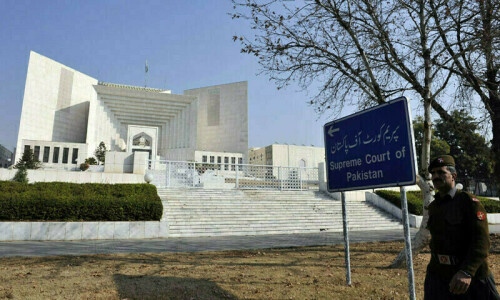
CHAKWAL: Mohammad Amjad and Adnan Shafqat ventured into dairy farming in 2008. After thorough research, the brothers went to Cholistan in Bahawalpur district, where they bought 14 cows of the Cholistani breed.
The aim was not to raise just Cholistani cows but to crossbreed. After a decade, Mr Amjad and Mr Shafqat have 150 cattle at their sprawling 100-acre GR Farm on the bank of Soan River near the Neelah-Dullah Interchange in Chakwal.
One can see Cholistani-Friesian and Sahiwal-Friesian cows at the farm.
As the number of cattle increased year by year, so did the production of milk.
The low price of raw milk pushed both brothers to modernise their business, and with the help of the United States Agency for International Development they recently installed the first milk pasteurising unit in the Potohar region on their farm.
It is now able to pasteurise 2,000 litres of milk a day.
The installation of the milk pasteurising unit changed the business altogether.
Milk that was sold for Rs60 per litre is now sold at Rs120 per litre, pasteurised and packed.
“As the milk production was higher, we thought it was being wasted.
“We searched the market and were amazed to learn that Potohar region did not have a single milk pasteurising unit,” said Mr Shafqat.
He said they had 1,000 litres of milk at their own farm which would be delivered to consumers from cows untouched.
“Unfortunately, only 5pc of our population gets pure milk. The milk delivered by milkmen contains health hazards,” he said, adding that their product was free of chemicals, pasteurised and packed in hygienic conditions.
Pasteurised milk expires in six days and can be easily delivered to remote parts of the country, but the two brothers have initially chosen Islamabad as their market.
“It was not an easy task rather we had to go make a hectic effort to achieve our goal. This vast area was barren and we have converted it into a fertile area,” Mr Shafqat said.
Mr Amjad added that Cholistani cross cows were resistant to hot weather and their feed consumption was also lower than pure Friesian cows.
The brothers’ farm also includes orange, apricot and grape orchard, which make it an ideal destination for agri-tourism, and also produces jiggery of sugarcane grown at the farm and pure wheat floor.
Published in Dawn, December 16th, 2019











































